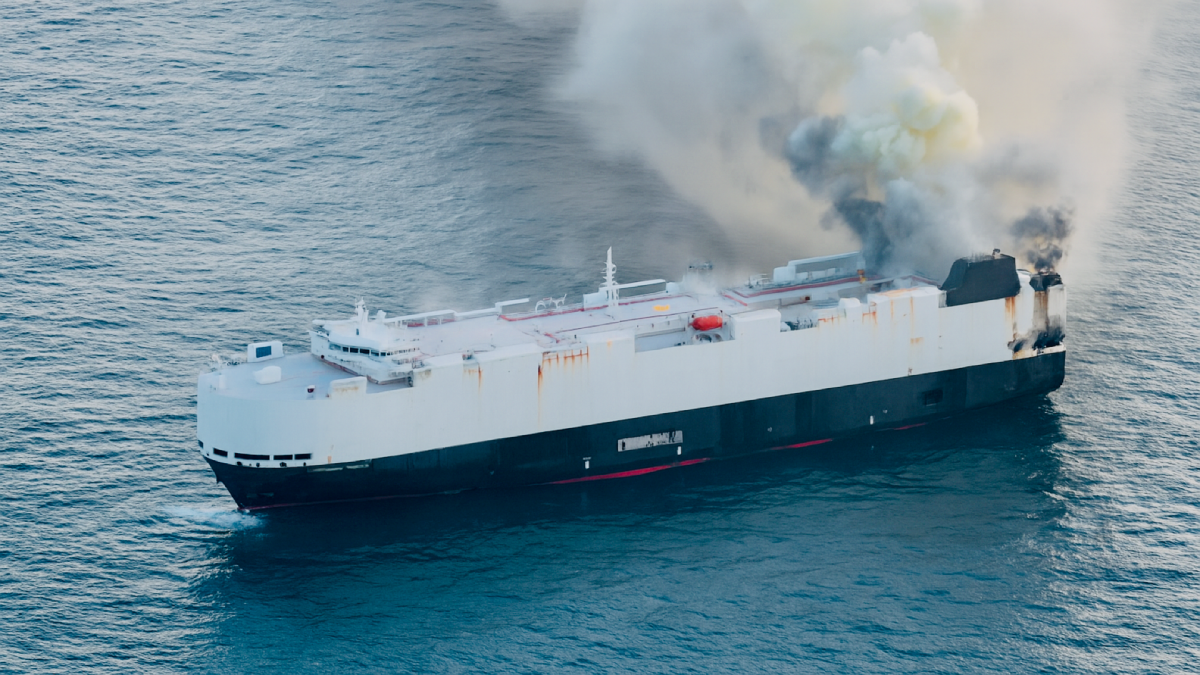The Morning Midas cargo ship sank in the North Pacific Ocean on 24 June after a catastrophic fire tore through its lower decks, destroying the vessel and more than 3,000 electric vehicles. All 21 crew members were rescued by a nearby merchant ship during a swift maritime response.
The 200-metre roll-on/roll-off ship, operated by South Korea’s Polaris Shipping and flagged in the Marshall Islands, had been transporting electric vehicles from Japan to the United States. A distress signal was sent as the fire spread rapidly. The Green Ocean, sailing nearby, arrived within hours and completed the evacuation.
Fire Escalated by EV Cargo
The blaze began in one of the vehicle decks and intensified despite the activation of suppression systems. Lithium-ion batteries in the EVs are believed to have accelerated the fire’s spread, making it nearly impossible to contain.
“Crew safety was our top priority,” said Polaris in a statement. “We are thankful all members made it off safely.”
The Morning Midas cargo ship was fully loaded with new EVs, including battery-powered SUVs and sedans. Investigators have noted that EV fires pose particular challenges at sea, where containment options are limited.
Ship Sinks, Cause Under Investigation
By late afternoon, the vessel began to list and ultimately sank about 1,100 nautical miles northwest of Hawaii. The sinking was confirmed by satellite imagery and Coast Guard overflight.
A joint investigation has been launched by the U.S. National Transportation Safety Board and South Korean maritime officials. Early reports suggest a possible battery-related malfunction, but the cause has not yet been definitively determined.
Authorities are continuing to monitor the wreck site. No fuel spill has been detected so far, though marine agencies have issued environmental alerts as a precaution.
Rising Risk in Maritime EV Transport
This incident has intensified global concern over the safety of transporting electric vehicles by sea. Maritime experts warn that current regulations do not sufficiently address the risks posed by lithium-ion batteries in enclosed cargo holds.
The wreck of the Morning Midas cargo ship has underscored the urgent need for new safety standards, including fire-resistant compartments, battery pre-checks, and enhanced crew training.
With the EV market booming globally, shipping carriers may soon face stricter international oversight.


